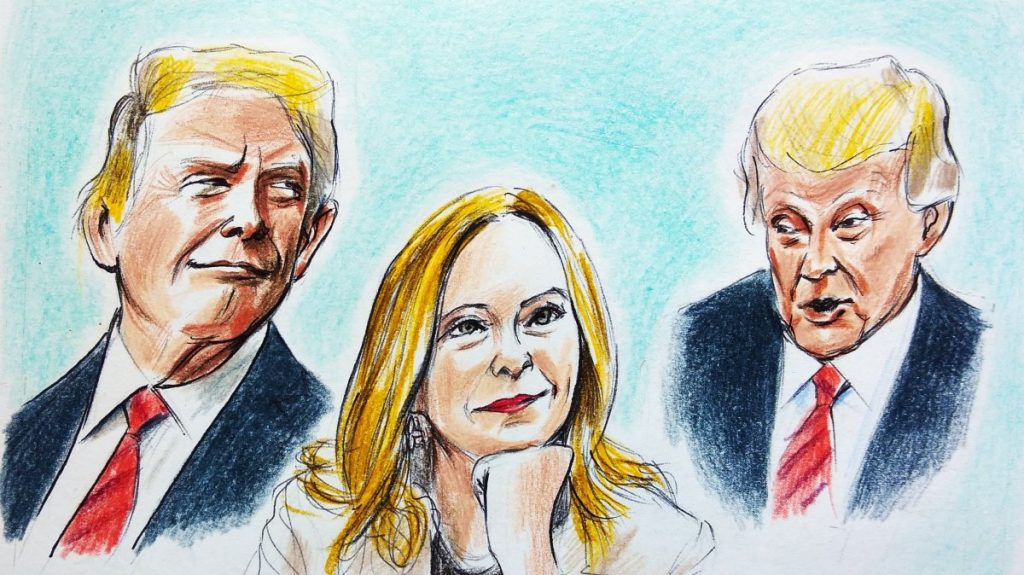On April 17, Italian Prime Minister Giorgia Meloni met with U.S. President Donald Trump at the White House, marking a significant moment for transatlantic relations and Italy’s global positioning. The meeting was followed by U.S. Deputy President JD Vance’s visit to Rome, confirming the already excellent synergies. Expectations regarding the Meloni-Trump meeting were many and from many quarters, especially the European Union. Although Brussels had not given the Italian Prime Minister an official mandate, the main EU representatives looked confident in Meloni’s bridging action on the thorny issue of the tariff. The outcome was hailed as “positive” by the president of the European Commission, Ursula Von Der Leyen, who is entitled to carry out the negotiations on tariffs between the EU and the United States. Hence, there is good reason to believe that in the coming months, the United States and European Union round table could be held in Rome.
Tying US with EU
To some extent, the Meloni-Trump meeting was viewed with suspicion by many: not only did the Italian opposition slander the prime minister, but also some chancelleries raised doubts about her move, fearing that the special Italian-American partnership could split the European bloc by acting as a sort of Trojan horse. Although in Washington, Meloni herself stated that she did not formally have any European mandate to negotiate with America, the crucial issues on the table were trade tariffs, energy security and defense spending, which are currently dividing the West.
Both leaders expressed optimism about the possibility of reaching a trade agreement between the U.S. and the EU. In this context, Meloni is proposing herself as a “bridge” between Washington and Brussels, a role welcomed by Trump, who defined the Italian counterpart as “fantastic” and “one of the real leaders of the world,” underlining the importance of Italy for the U.S.
During the talks, another central point was Italy’s commitment to increase defense spending, to reach 2% of GDP, in line with NATO standards. The purpose is aligned with U.S. expectations, which aim to raise greater responsibility in security matters from all European partners.
Rome and Washington also prove to be in tune in their attempt to marginalize China, focusing on the “Cotton Road” with India as an alternative to the Chinese “Silk Road.” This project had already been outlined at the G20 meeting held in New Delhi, India, on Sept. 10, 2023. On that occasion, India, the U.S., under the Biden administration, the EU, France, Germany, Italy, Saudi Arabia and the United Arab Emirates (UAE) signed a memorandum of understanding for the India-Middle East-Europe corridor (IMEC). The ambitious plan looks at infrastructure and aims to develop on two main channels: railway, between Europe and the Gulf (Emirates, Saudi Arabia, Israel, Jordan), and a port, between India and the Gulf. As the Italian port of Trieste will serve as a crucial logistics hub in Eurasian trade, Italy will gain a central role in global dynamics by connecting the Indo-Mediterranean regions and rising as a pivotal point in the global supply chain.
The “Cotton Road” is therefore of strategic importance for Italy, as a hinge between the Mediterranean and the Indo-Pacific. It is even more significant that the perimeter of the renewed Italy-U.S. relations is tied to this project. Indeed, the Leaders’ Joint Statement signed by Donald Trump and Giorgia Meloni in Washington states: “The United States and Italy will work together to develop the India-Middle East-Europe Economic Corridor, one of the greatest economic integration and connectivity projects of this century by stimulating economic development and integration from India, to the Gulf, to Middle East to Italy and then to the United States.”
Italy’s growing global role
It is certainly true that Italy is strengthening its international position thanks to both its diplomatic action and its growing attractiveness for global investments. The renewed recognition of Italy as a central player on many tables and various international dossiers is mainly due to the leader’s vision and realpolitik approach. As a central Mediterranean country, Italy is leveraging its position and anchoring in bilateral relations and within multilateral systems to protect its national interests and boost regional integration through a pragmatic approach.
Behind the “Western nationalism” brand, Meloni aims to relaunch Italy globally and strengthen relations based on shared principles, as well as from a business perspective. Indeed, there is a perfect congruence between diplomatic actions and business calculations. According to the Global Attractiveness Index 2024, Italy has gained a position, reaching 17th place in the world ranking. This improvement is attributed to a mix of innovation, economic growth and support for SMEs. Furthermore, leader diplomacy and frank, direct personal relationships also play a significant role.
In this light, the last meeting between Meloni and Trump highlights Italy’s willingness to play a proactive role in international dynamics. Italy is now a privileged interlocutor of Trump’s America; this is also evident from Rome’s role in hosting the new high-level negotiating round between the U.S. and Iran. Currently, despite opposition and persistent criticism, there is optimism regarding Rome’s diplomatic capacity, which is perceived as a key actor able to maintain balance by controlling global volatility and polarization in the interests of both national and shared interests.


